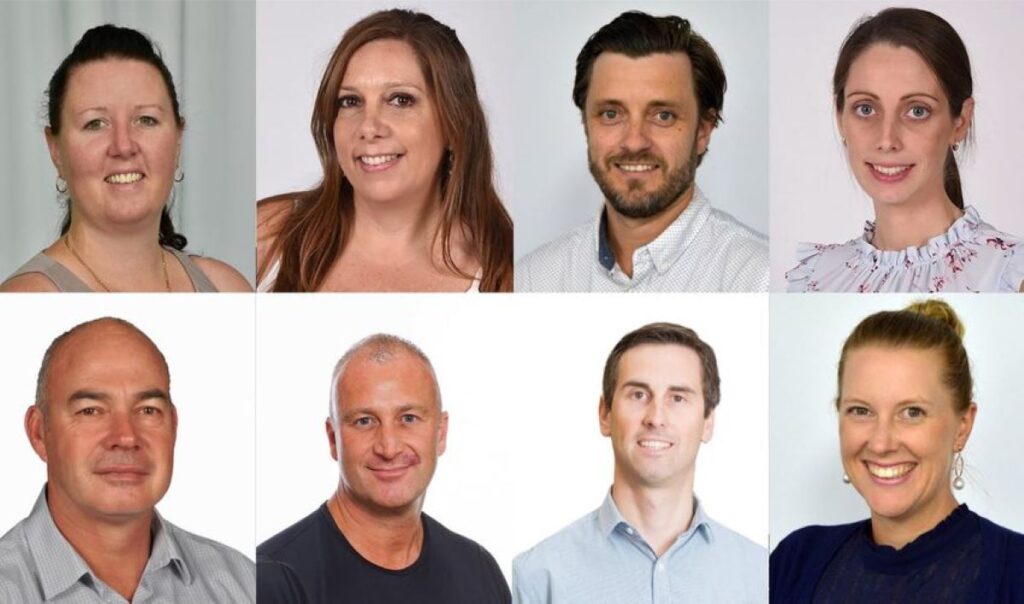
A team of CQU physiotherapy academics have recently been recognised in the Australian Awards for University Teaching for the development of a simulation experience that helps students prepare for their transition from classroom to clinic.
Bundaberg’s Tanya Palmer, Sasha Job, Dr Steven Obst and Professor Anthony Schneiders joined Dr Luke Heales, Dr Vanesa Bochkezanian, Samantha Swain and Sean Ledger in receiving a citation for an outstanding contribution to student learning.
The physiotherapy academics introduced a unique and peer-to-peer driven simulation experience that streamlines the transition to the clinic for third-year physiotherapy students.
Physiotherapy clinical education coordinator and lecturer Tanya Palmer said the team was grateful to be acknowledged for their hard work and dedication to their students.
“We as a team feel that we owe it to our students to prepare them best we can for their entry to the wide world of clinical practice,” she said.
“Unfortunately, we can only teach them so much in normal classroom teaching and the exponential leap in expectations from the classroom to the clinic can be a challenge for many physiotherapy students entering their first ‘real’ clinical placement.”
Tanya said because of this pressure, they were finding many students experienced high levels of stress and anxiety before, and during, their first clinical placement.
“Traditionally undergraduate students spend years learning physiotherapy theory and practical skills in a classroom, practising on healthy adults without pain,” she said.
“Then when they are suddenly thrust into unfamiliar and high-paced clinical settings where they are confronted with a real-life patient in agony, not surprisingly, students feel immense pressure to make the correct diagnosis and provide appropriate care.”
To help support this transition, in 2016 the team introduced the unique and peer-to-peer driven simulation experience that streamlines the transition to the clinic for third-year physiotherapy students.
“We simulate the crazy world of a hospital or private practice physiotherapy with role-play actors and educators, to give the students a taste of what they will expect on their clinical placements,” she said.
“We run these on campus in a supportive and educationally sound and safe environment to foster student learning, self-confidence, and independence.
“Our students engage with the patient actors as if they are real patients and perform clinical examinations and treatment regimes under the supervision of a simulated clinical educator.
“The students enjoy the experience and learn so much from it, which is all we as academics can ask for.”
To date, 127 physiotherapy students have transformed their self-confidence and clinical performance by completing the simulation program prior to entering their first clinical placement experience.
Tanya thanked CQUniversity, both for putting forward their award nomination and for the ongoing support in their program.
“Our program, unlike any other in Australia, aims to ‘simulate’ not just the ‘patient’ by using paid actors, but also the ‘clinical educator’ by using a mix of academic staff, local physiotherapists, and importantly, recent, and soon to be graduated CQU fourth-year physiotherapy students to role-play as the clinical educator,” she said.
“Without the financial support from CQUniversity to fund the actors and our lab technicians for assisting with preparation and running of the simulation blocks, we as academics couldn’t offer this amazing experience to our students.”
- Other news: Strong growth in deposits, lending continues at Auswide




